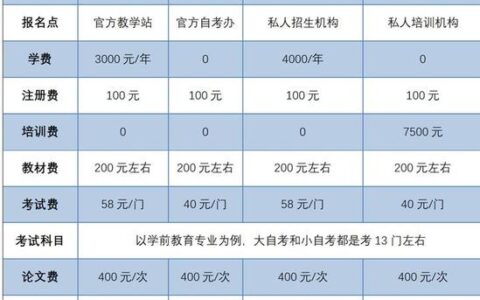听力四级分值
英语四级听力部分为248.5分,每个题都是7.1分。
1、长对话 8% 8个题目 每小题7.1分。
2、听力篇章 7% 共7小题,每小题7.1分。
3、讲话、报道、讲座 20% 共10个小题,每小题14.2分。
英语四级考试目的是推动大学英语教学大纲的贯彻执行,对大学生的英语能力进行客观、准确的测量,为提高我国大学英语课程的教学质量服务。
报名时间CET全国英语四六级考试的考试时间为:每年6月份、12月份(每年时间略有不同)。
以2021英语四级考试为例,四级听力总分248.5分。
1、听力分值环节占到整套试卷的35%,除听力篇章外每个题都是7.1分。
2、短篇新闻分值占:7%,一共7个小题,每小题7.1分。
3、长对话分值占8%,8个题目,每小题7.1分。
4、听力篇章分值占20%,共10个小题,每小题14.2分。
5、听力的答题时间:25分钟。
6、在这个环节需要达到149分为及格,大概是答对14个左右即可。
英语四级其他分数分配表
1、四级作文总分106.5分:
1.1、说明:写作分值占到整套试卷的15% ,大致106.5分。
1.2、在这个环节,你需要达到63.9分方为及格。
1.3、写作的答题时间:30分钟。
2、四级阅读理解总分248.5分:
2.1、阅读分值占整套试卷的35%,选词填空每题3.55分,其余每题都是7.1分。
2.2、选词填空分值占5%,10个题,每小题3.55分。
2.3、长篇阅读分值占10%,10个题,每小题7.1分。
2.4、仔细阅读分值占20%,共2篇,一篇5个题,每小题14.2分。
2.5、阅读的答题时间:40分钟,在这部分你要达到149分为及格,大概答对18个左右即可。
3、英语四级翻译总分106.5分:
3.1、考题是汉译英。
3.2、翻译分值占整套试卷的15%,总分是106.5分。
3.3、翻译答题时间30分钟。
中考英语真题听力mp3
听力录音MP3地址:
听力录音稿:
2012年武汉市中考英语听力原文
1. Who is that boy by the window?
2. How do you go to the museum?
3. What’s in the yellow box?
4. Which is Tom’s jacket?
5. When are you having breakfast?
6. A: Hello! This is Mike speaking.
B: Hi! This is Jennifer.
7. A: What’s wrong with you?
B:I have a headache, doctor and I don’t feel like eating.
8. A: It’s a lovely day, isn’t it?
B: Yes. It’s nice and warm, but the fog this morning was very thick.
9. A: Good afternoon, sir. Are you ready to borrow these books?
B: Yes. And how long can I keep them?
10. A: Oh! Mom. Let’s go out for a walk. I feel tired.
B: Ok. That’s a good idea.
11. A: I enjoy watching movies during my free time. It makes me relaxed.
B: Oh! I prefer reading novels.
12. A: I think I have lost photos that Helen sent me last week.
B: Oh! Don’t worry. Why don’t you call her and ask her to send them again?
Text13.
A: Hey! Henry. What’s the rush?
B: Oh! This is really my day, today. I got the first prize in the teenager’s talent contest and I won 500 dollars. I am fetching the money now.
A: Oh my god! Congratulations.
B: I am so excited to see my name on the winning list
A: Yeah. That’s amazing.
B: Exactly. I am really a luck dog. I can’t wait to tell anyone about the good news.
A: By the way, what are you going to do with the money?
B: I will give the money to charity.
Text14
A: What time did you come home last night, Alice?
B: I don’t know that. Maybe half past twelve, I think.
A: Half past twelve? But I didn’t hear you. I was so worried last night.
B: I am sorry, Dad. I came in quietly. I didn’t want to wake you up.
A: Did you go to that wild party?
B: Wild party? Oh, no. Dad, you know I hate those parties. I went to a concert with Maggie and Christina. It was fantastic.
A: But why did you come back so late? The concert didn’t end until midnight, did it?
B: No. It ended at ten thirty, but we went to Christina’s place and had some drink. Mmm, Then we talked about pop music.
A: Well. I see.
Text15
A: Good evening, Sir. Welcome to Sunday Restaurant. A table for one?
B: No. Thank you. I am a tourist passing by, but I have a small problem. Can you help me?
A: Of course.
B: I am looking for a hotel. Are there any hotels near here?
A: Yes. There are some hotels in the street. The nearest one is next to the bank. It’s quite modern.
B: Modern hotels must be expensive.
A: Yeah. I think so.
B: Do you think there are any cheaper ones nearby? I am leaving for New York tomorrow morning.
A: Mmm. There is one. It’s a traditional family style hotel, very comfortable and the price is reasonable.
B: Oh!Sounds perfect. Can you tell me how to get there?
A: Ok. Drive west for about five minutes and you will find a great building on the right side. It’s in Queen Street.
B: Great. Thank you very much.
A: That’s all right. Have a good time.
B: It’s really kind of you.
Text 16
A: Hello, everyone. First, let me introduce myself. My name is White and I work at Grace Hospital. As you know, I am here today to talk about blood donation. The idea of a blood donation is very simple. If a person is in an accident or has an operation, he will lose a lot of blood and this are the times when a blood donation is needed.
The simple idea means taking blood from another person and putting it into the body of patient, so you might be thinking what dose this have to do with me. Well, it has something to do with all of us. Hospitals need to keep banks of blood ready for saving lives. The only way they can get that blood is from common people like you and this is completely safe. In fact, your body will make enough blood to replace it after only one day. Doctors have been carrying out blood donations for hundreds of years. Giving blood only takes several minutes and it doesn’t hurt. It costs you nothing and it could save a life, so please! Give blood!
望采纳…….
四级听力87分是全错了吗
四级听力87分不是全错,0分才是全错。
英语四级考试总分710分,其中听力部分占35%,满分为249分。其它还有阅读部分占35%,满分为249分;综合部分占10%,满分为70分;作文部分占15%,满分为106分;翻译部分占5%,满分为36分。
考试内容
新闻听力一般都采用倒金字塔型结构,即将重要的内容,放在开头第一句话,后面的内容一般是针对导语的进一步展开。
一般考查对新闻大意的理解,对新闻内容的理解,以及对新闻中数字、人物、时间、地点等细节的捕捉。
四级真题听力及原文
下面是我整理的大学英语四级考试听力真题原文,希望对大家有帮助。
2013年6月大学英语四级真题-听力原文
Part III Listening Comprehension
Section A
Directions:In this section, you will hear 8 short conversations and2 long conversations. At the end of each conversation, one or more questions will be asked about what was said. Both the conversation and the questions will be spoken only once. After each question there will be a pause. During the pause, you must read the four choices marked A), B), C) and D), and decide which is the best answer. Then mark the corresponding letter on Answer Sheet 2 with a single line through the center.
11. W: What are you doing in here, Sir? Didn’t you see the private sign over there?
M: I’m sorry. I didn’t notice it when I came in. I’m looking for the manager’s office.
Q: What do we learn from the conversation?
12. W: Mike, what’s the problem? You’ve known from month the report is due today.
M: I know, but I’m afraid I need another few days. The data is hard to interpret than I expected.
Q: What does the man mean?
13. W: Excuse me, Tony. Has my parcel from New York arrived?
M: Unfortunately, it’s been delayed due to the bad weather.
Q: What is the woman waiting for?
14. W: Pam said we won’t have the psychology test until the end of next week.
M: Ellen, you should know better than to take Pam’s words for anything.
Q: What doesthe man imply about Pam?
15. W: Tom, would you please watch my suitcase for a minute? I need to go make a quick phone call.
M: Yeah, sure. Take your time. Our train doesn‘t leave for another twenty minutes.
Q: What does the man mean?
16. M: Frankly, Mary is not what I’d called easy-going.
W: I see. People in our neighborhood find it hard to believe she’s my twin sister.
Q: What does the woman imply?
17. M: How soon do you think this can be cleaned?
W: We have same day service, sir. You can pick up your suit after five o’clock.
Q: Where does the conversation most probably take place?
18. W: I really enjoy that piece you just play on the piano. I bet you get a lot of requests for it.
M: You said it. People just can’t get enough of it.
Q: What do we learn from the conversation?
Section B
Questions 19-22 are based on the conversation you have just heard.
W: Good afternoon, Mr. Jones. I am Teresa Chen, and I‘ll be interviewing you. How are you today?
M: I am fine, thank you. And you, Miss Chen?
W: Good, Thanks. Can you tell me something about your experience in this kind of work?
M: Well, for several years, I managed a department for the Brownstone Company in Detroit, Michigan. Now I work part time because I also go to school at night. I‘m getting a business degree.
W: Oh, how interesting. Tell me, why do you want to leave your present job?
M: I‘ll finish school in a few months, and I’d like a full-time position with more responsibility.
W: And why would you like to work for our company?
M: Because I know your company‘s work and I like it.
W: Could you please tell me about your special skills and interests?
M: Of course, I‘m good at computers and I can speak Spanish. I used to take classes in Spanish at the local college. And I like travelling a lot.
W: Can you give me any references?
M: Yes, certainly. You can talk to Mr. McCaw, my boss, at the Brownstone Company. I could also give you the names and numbers of several of my teachers.
W: All right, Mr. Jones, and would you like to ask me any questions?
M: Yes, I wonder when I‘ll be informed about my application for the job.
W: Well, we’ll let you know as soon as possible. Let‘s stay in touch. Thank you very much for coming this afternoon.
M: Thank you. Questions 19-22 are based on the conversation you have just heard.
19. What does the man say about his working experience?
20. Why does the man want to leave his present job?
21. What is the man interested in?
22. What question did the man ask the woman?
Questions 23-25 are based on the conversation you have just heard.
M: Lisa, Lisa! Over here, darling! It’s wonderful to see you. Oh, Lisa, you look marvelous.
W: Oh, Paul, you look tired. Two months away in the capital? Paul, I think you’ve been working too hard.
M: I’m fine. The city is very hot this time of the year. It’s good to get back to some fresh air. You know, Lisa, what they say about pregnant women really is true.
W: What’s that Paul?
M: They say they look beautiful.
W: Well, I had a lot of tension while you’ve been studying hard on your course in D.C.
M: Oh?
W: Oh, don’t worry, all from a man over
50. Father has told all his business friends the good news about the baby. And the phone hasn’t stopped ringing.
M: Oh, look, darling. There’s a taxi.
W: Paul, tell me about the special project you mentioned on the phone. You sounded very excited about it!
M: You know, I’ve learned a lot from the project. I’m surprised that was still in business.
W: That’s because we have a wonderful sales manager ——you!
M: Thanks. But that’s not the problem at all. Lisa, our little company, and it is little compared to the giants in the city. Our little company’s in danger. We are out of date.We need to expand. If we don’t, we will be swallowed up by one of the giants.
Questions 23-25 are based on the conversation you have just heard.
23. What do we learn about Lisa?
24. What do we learn about the man from the conversation?
25. What does the man say about his company?
Section C
Passage 1
Questions 26 to 29 are based on the passage you have just heard.
Farmington, Utah, is a more pleasant community since a local girls’ 4-H club improved Main Street. Six 4-H girls worked to clean the 72 foot curbside that was covered with weeds, rocks and trash. Each member volunteered to clean up and to dig in plot, five flats of flowers. They also took terms in watering, weeding and maintaining the plot. Participation in this project helped the girls developed a new attitude towards their parents of their own homes; they’ve learned how to work with tools, and improve their work habits. One mother said that before her daughter was involved in this project, she would not even pour a weed. The experience on Main Street stimulated self-improvement, and encouraged members to take pride in their home grounds and the total community. City officials cooperated with the 4-H members in planting trees, building cooking facilities, pick-me tables, swings and public rest rooms. The 4-H girls planted trees and took care of them during the early stages of growth. The total park project needed more plantings in the following years. Members of the 4-H club agreed to follow the project through to completion, because they receive satisfaction from the results of constructive work. The project is a growing one and is spread from the park to the school and the shopping center. Trees and flowers have all been planted in the shopping center, making the atmosphere pleasant.
Questions 26 to 29 are based on the passage you have just heard.
26. What do we learn about Main Street in Farmington?
27. What do the 4-H club members do about the curbside?
28. What have the 4-H girls learned from the project?
29. Why do the 4-H girls agree to follow the park project through to complete. Question 30 to 32 are based on the passage you have just heard. Passage 2 According to a survey on reading conducted in 2001 by the U.S. National Education Association (NEA), young Americans say reading is important, more important than computers and science. Over 50% of the 12 to 18 years old interviewed say they enjoy reading a lot. 79% find it stimulating and interesting. And 87% think it is relaxing. About 68% of those surveyed disagreed with the opinion that reading is boring or old-fashioned. Over half teenagers interviewed said they read more than ten books a year. The results also show that middle school students read more books than high schoolers. Over 66% of teens like to read fiction, such as novels and stories. Over 26% are interested in non-fiction, such history books.64% of students listed reading stories about people my own age. That’s a favorite topic. Mysteries and detective stories came second on the list at 53%. Just under 50% said they were interested in reading about their own culture in tradition. Of the teenagers who participated in the survey, 49% said that libraries are where they get most of their books. However, many complain that their school libraries do not have enough up-to-date interesting books and magazines. Even though many teenagers in the US enjoy reading, they still have other interests. When asked which activity would be the most difficult to give up for a week, 48% said listening to music. TV would be difficult to give up for 25% of those surveyed.
Question 30 to 32 are based on the passage you have just heard.
30. What does the survey on teenager reading show?
31. What books are most popular among teenagers according to the survey?
32. What activity do teenagers find the most difficult to give up for a week?
Questions 33-35 are based on the passage you have just heard.
Passage 3
Thank you for coming, everyone. Today‘s presentation will show how we see the development of the motor car in the short to medium term, and that is why we have invited all of you here today. Let’s start with power. It‘s clear that petrol-driven engines have no future. Already there are many alternative fuel vehicles on the market, powered by anything from solar power to natural gas. Some independent thinkers have even produced cars that run on vegetable oil. But as we all know, of all these alternative fuel vehicles, the most practical are electric vehicles. Sure, in the past electric vehicles have their problems, namely, a limited driving range, and very few recharging points, which limited their use. Now, however, recent developments in electric vehicle technology mean they can match conventional petrol engines in terms of performance and safety. Let’s not forget that electric vehicles are cleaner. Plus, importantly, the power source is rechargeable, so this does not involve using any valuable resources. Moving on to communications, very soon, cars will be linked to GPS satellites, so they‘ll do all the driving for you. What controls remain for the users will be audio-based, so, for example, you’ll just have to say “a bit warmer”, and the air conditioning will adjust automatically. You‘ll also be able to receive email, music and movies, all via an internet link. So just type in the destination you want, sit back, sleep, watch your movie, whatever. Questions
33-35 are based on the passage you have just heard.
33. What is the presentation mainly about?
34. What used to restrict the use of electric vehicles?
35. What does the speaker say about electric vehicles of today?
本图文由用户发布,该文仅代表作者本人观点,本站仅提供信息存储空间服务。如发现本站有涉嫌抄袭侵权/违法违规的内容,联系本站举报。转发注明出处:https://www.xsy-edu.com/n/19381.html





